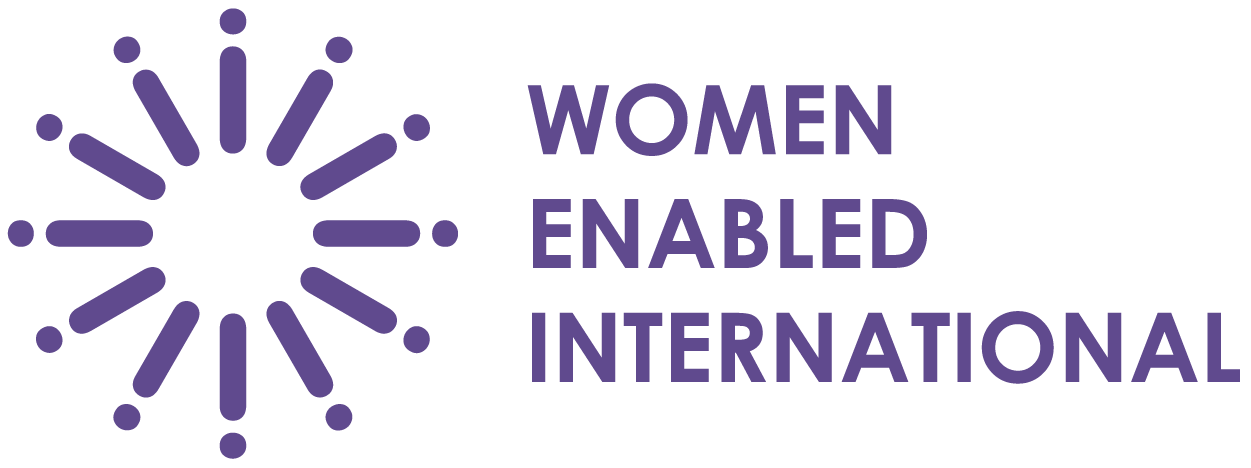Thematic Fact Sheets
Women Enabled International’s thematic fact sheets outline human rights violations and government obligations at the intersection of gender and disability on a range of issues.
2. Fact Sheet: Sexual and Reproductive Health and Rights of Women and Girls with Disabilities
3. Fact Sheet: The Right of Women and Girls with Disabilities to be Free from Gender-Based Violence
4. Fact Sheet: The Right to Education for Women and Girls with Disabilities
5. Fact Sheet: Access to Justice for Women and Girls with Disabilities
6. Fact Sheet: Legal Capacity of Women and Girls with Disabilities
7. Fact Sheet: Rights of Women and Girls with Disabilities in Conflict and Humanitarian Emergencies
1. Fact Sheet: Recommendations for Providing Gender-Based Violence Services to Disabled Women in the U.S.
2. Fact Sheet: Sexual and Reproductive Health and Rights of Women and Girls with Disabilities
Women and girls with disabilities are just as likely to be sexually active and have the same sexual and reproductive health needs as women and girls without disabilities. Due to multiple and intersecting forms of discrimination on the basis of gender and disability, however, women and girls with disabilities face unique and pervasive barriers to full realization of their sexual and reproductive health and rights.
3. Fact Sheet: The Right of Women and Girls with Disabilities to be Free from Gender-Based Violence
Women and girls with disabilities are at least two to three times more likely than women without disabilities to experience gender-based violence in various spheres. Women with also experience distinct barriers to escaping such violence and seeking justice. However, existing laws, policies, and programs on gender-based violence seldom address the specific concerns of women and girls with disabilities.
4. Fact Sheet: The Right to Education for Women and Girls with Disabilities
Despite having the same rights to education as their male counterparts and non-disabled peers, girls with disabilities are the most excluded group of children from all educational settings from primary school to higher education settings due to multiple and intersecting forms of discrimination on the basis of both their gender and their disability. However, existing laws, policies, and programs do not adequately address the various educational barriers faced by women and girls with disabilities.
5. Fact Sheet: Access to Justice for Women and Girls with Disabilities
Women and girls with disabilities face significant barriers to accessing justice, due to discrimination on the basis of both gender and disability, accessibility barriers to the justice system, and lack of reasonable accommodations throughout judicial proceedings. Lack of access to justice can reinforce vulnerability to rights violations, particularly where perpetrators may feel emboldened when they know the justice system is unlikely to respond to complaints by women with disabilities.
6. Fact Sheet: Legal Capacity of Women and Girls with Disabilities
Discriminatory laws frequently deny women with disabilities their right to legal capacity under substituted decision-making regimes, such as guardianship, conservatorship, and health laws that permit forced treatment. The denial of legal capacity gives rise to numerous other violations of fundamental rights, including the rights to marry and found a family; make autonomous and voluntary decisions about sexual and reproductive health; give or withhold consent to intimate relationships; and seek accountability for various forms of abuse through the justice system.
7. Fact Sheet: Rights of Women and Girls with Disabilities in Conflict and Humanitarian Emergencies
Women, girls, and gender non-conforming people with disabilities are disproportionally impacted by conflict and humanitarian emergencies due to multiple and intersecting forms of discrimination that heighten their exclusion and risks. Despite the distinct challenges facing women with disabilities—and thus the important perspective they can bring to addressing these challenges—women with disabilities are routinely excluded from both peacebuilding processes and recovery following natural disasters.
Access: Good Practices
Women Enabled International’s good practices fact sheets provide guidance to organizations and individuals on promoting the full and equal participation of people with disabilities.
2. Good Practices: Access – International Meetings Checklist
Accessibility and provision of reasonable accommodations are integral to meeting planning and participation. This resource provides general recommendations and good practices to ensure the full and equal participation of people with disabilities in international meetings. However, always keep in mind that the guiding principle to making any meeting inclusive is: When in doubt, ask the person with a disability. People with disabilities know their needs best.
WEI Newsletter
Sharing news about issues and our progress is essential to advancing our reach!
We value your privacy and will never share your information You may opt out at any time.
